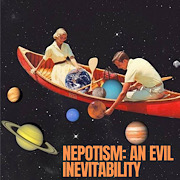|
Jerusalem posted:I got Everitt's "Cicero" for Christmas and am really enjoying it. Everitt mentions in the book that Cicero wrote a "Secret History" of the times (including his thoughts of the first Triumvate) that he didn't dare publish while he was alive, but that surfaced after his death and was well-read (and referenced) throughout antiquity, but was lost at some point since then. Looking this up I couldn't find any reference to it, the only listing of his missing works are a book on philosophy, the book he wrote after the death of his daughter, and four tragedies - can anyone tell me any more about it? What other works referenced it, what kind of content it may have included etc? Cassius Dio refers to a book of Cicero's that accuses Crassus and Caesar, which supposedly he sealed and gave to his family with orders that it not be published while he was alive. After the Ides of March, events moved too fast and it's likely nobody cared about any juicy revelations in it because there was Some Real poo poo happening, and even Cicero himself was too busy working against Antony to worry about it. I think Cassius Dio refers to the book as being called de consiliis. If that's the case it seems unlikely the work would have been published, since Cicero's son was also proscribed at the same time as the man himself and was busy working with Brutus and Cassius. From Cicero's letters we know that he wanted to write a Secret History, and from fragments we know that there was an accusatory work supposedly written by him used in an election campaign. Plutarch, in Life of Crassus, mentions that Cicero published something accusing Caesar and Crassus of being complicit in the Cataline conspiracy, which some people think is this missing work. Some people have further speculated that Sallust's various defenses of Caesar were written specifically to refute Cicero's mystery work, but that seems unlikely because there were plenty of anti-Caesar works floating around and there's no need for it to be specifically Cicero's book to make Sallust to defend his guy.
|
|
|
|

|
| # ? May 15, 2024 03:10 |
my dad posted:Holy poo poo, looks like it was never translated. I even checked if Zagreb publishing houses had editions in English, and nope. Goddamn. There's a pet project for you if ever there was one.
|
|
|
|
|
Tao Jones posted:If that's the case it seems unlikely the work would have been published, since Cicero's son was also proscribed at the same time as the man himself and was busy working with Brutus and Cassius. Well drat, I'd have loved to read that (and similarly Caesar's "Anti-Cato") - anything from a guy alive at the time ripping on another guy alive at the time would be utterly fascinating.
|
|
|
|
Jerusalem posted:Well drat, I'd have loved to read that (and similarly Caesar's "Anti-Cato") - anything from a guy alive at the time ripping on another guy alive at the time would be utterly fascinating. There are several of Cicero's polemics that survived (In Verrem, the Philippics, ...).
|
|
|
|
I know about those, but I'd still like more! Guys like me are how Atticus made his money I guess 
|
|
|
|
Grand Fromage posted:Ironworking was one of the things at L'Anse aux Meadows that proved it was a Viking settlement. That technology just didn't exist in the Americas. I was on vacation so I"m going to try to cover a whole bunch of craziness in one post. L'Anse aux Meadows also had Viking stoneworking found in the area and it's not the only piece found in Northern Newfoundland and in Labrador but it's the only site anyone can proven. Sadly much of the high North of Canada isn't well explored such as the fact the Canadian government found a Nazi weather station that had been operating for 50 years in Northern Quebec in 2002. Many people did believe that the Vikings had landed in North America before L'Anse aux Meadows but everyone always figured it was in Northern Quebec or Baffin Island and was lost to history. Also as far as the Atlantis stuff goes, everyone in real history is well aware of the non-Andean Pre-Colombian societies that where pretty much dead by 1600. However, we have little to no records of those societies because they didn't do any work in stone beyond some pottery (that we have found). Most of those societies work in wood which was swallowed up by the rain-forest centuries ago.
|
|
|
|
Tell me more about Nazis in Canada in 1952.
|
|
|
|
Ynglaur posted:Tell me more about Nazis in Canada in 1952. Well, 59 years. Weather Station Kurt, which actually was not landed in Canada, as the Dominion of Newfoundland (and Labrador) wouldn't join Canada for another six years.
|
|
|
|
Thanks!
|
|
|
|
Time has slipped away from me, just Like history.
|
|
|
|
CoolCab posted:Well, 59 years. Weather Station Kurt, which actually was not landed in Canada, as the Dominion of Newfoundland (and Labrador) wouldn't join Canada for another six years. Even longer than the Japanese holdouts. Were there a couple of old guys puttering around, wondering why nobody was responding to their weather reports and their denunciations of particularly Jewish moose?
|
|
|
|
sbaldrick posted:I was on vacation so I"m going to try to cover a whole bunch of craziness in one post. A few years ago, I read about a farmer somewhere in the US who had over-turned a rock in the hopes of getting it out of his field. He then noticed a bunch of old runic markings on the rock. Once transcribed, if I remember correctly, it spoke of an expedition that had settled there. Part of the group then left to explore and when they came back, the whole place had been massacred. It was something along those lines anyways. There is an entry on wiki regarding it. Its called the Kensington Runestone. Quite interesting stuff, although possibly a hoax.
|
|
|
|
Dalael posted:A few years ago, I read about a farmer somewhere in the US who had over-turned a rock in the hopes of getting it out of his field. He then noticed a bunch of old runic markings on the rock. Once transcribed, if I remember correctly, it spoke of an expedition that had settled there. Part of the group then left to explore and when they came back, the whole place had been massacred. It was something along those lines anyways. oh sure THAT makes you go "hmm interesting if true but we should keep an open mind for it being false" but when a guy sells you his book about Atlantis in loving Bolivia
|
|
|
|
Freudian posted:oh sure THAT makes you go "hmm interesting if true but we should keep an open mind for it being false" but when a guy sells you his book about Atlantis in loving Bolivia Quite the contrary. I think it would be awesome if it was true, hence why I remember about it. The idea that scandinavians could have been in North America even earlier than is currently believed is interesting. Considering that this artefact is not very well known, I thought it'd be a good thing to bring up the fact that people think its a hoax. Atlantis however, is a subject that is very well known and that is generally believed as being untrue, thus it would be pointless to mention what is already mostly known. Also, that book was available for free on pdf for the longest time and all the information is available for free on the site I linked (there are more than just the 4 main pages.) In other words, I was not sold anything at all. One thing needs to be understood, is that I am a big believer in the idea that the Oceans were not THE big barrier that most people think and that it was entirely possible that there was trans-atlantic contacts long before Columbus (http://community.plu.edu/~ryandp/RAX.html http://en.wikipedia.org/wiki/Thor_Heyerdahl). For example, the sweet potato comes from south america, yet it was also found in the Polynesian Islands. We also know there were humans in south America long before it was previously thought. Would you like to know more? (http://news.nationalgeographic.com/news/2013/11/131120-giant-sloths-people-americas-ancient-archaeology-science/ http://en.wikipedia.org/wiki/Monte_Verde http://www.sciencedaily.com/releases/2004/11/041118104010.htm) I know that at first glance, Jim Allen's theory looks retarded and more along the lines of pseudo-science than real science. But poo poo.. I dig that kind of stuff. Dalael fucked around with this message at 03:46 on Jan 4, 2015 |
|
|
|
Can we please avoid going back down this rabbit hole, I really like this thread 
|
|
|
|
Dalael posted:A few years ago, I read about a farmer somewhere in the US who had over-turned a rock in the hopes of getting it out of his field. He then noticed a bunch of old runic markings on the rock. Once transcribed, if I remember correctly, it spoke of an expedition that had settled there. Part of the group then left to explore and when they came back, the whole place had been massacred. It was something along those lines anyways. Not possibly a hoax, a complete hoax that was disproven about a month after the guy came forward by real science. The difference is the Viking runes found in Newfoundland are proven by science.
|
|
|
|
Edit: NVM. I just understood the context of the post I was replying to.
Dalael fucked around with this message at 05:52 on Jan 4, 2015 |
|
|
|
Navigation is a legitimate interesting point for history. From reading the Patrick O'Brian novels I can say this: ocean navigation is hard.
|
|
|
|
Arglebargle III posted:Navigation is a legitimate interesting point for history. From reading the Patrick O'Brian novels I can say this: ocean navigation is hard. It really is, on both counts. I too love stories of early cross-ocean voyages, but I'd prefer we stick to the idea of voyages which are supported by some physical evidence, rather than pure speculation. Pre-Columbian contact is possible, as shown by some modern adventurers, but it's also exceedingly unlikely given how damned difficult it is. In the one known case (the Norse) they had series of island oases to hop between. The Polynesians had something similar. It wouldn't make much sense for someone to load up a small boat, fill it with provisions, and then sail off into nowhere, without knowing that another world is actually out there. That said, whether there might have been some Polynesian-South American contact is an open question in academia yes?
|
|
|
|
Plus you have severe issues getting back once you accidentally luck into getting across in one direction!
|
|
|
|
I thought we had established that people from Bolivia were the first to make trans-atlantic contact.
|
|
|
|
They don't count because I can only assume the Athenians destroyed them.
|
|
|
|
So I've been doing a lot of reading on the collapse of the Late Bronze Age geopolitical system in the 12th century BC, and just finished Eric Cline's 1177 BC, which I found incredibly fascinating. But I've lately been stumbling upon a lot of revisionist historians making the ridiculous claim that, "Hey, there really WEREN'T any Greek Dark Ages," or "Hey, the Greek Dark Ages weren't that bad!" Claims that I found about as But come the gently caress on. That would have been cold loving comfort for the people who lived through those times. Life really, really sucked for the people living in Greece at that time. The population plummeted, any meaningful standard of living dwindled, famines and droughts ravaged the land, natural disasters struck routinely, international trade disappeared, and the Sea People decided they were going to go on a good ol'-fashioned rape-and-pillage tour. Oh, and did I mention that literacy literally ceased to exist for multiple centuries? In a country as long-winded and prolix as Greece? That is a Dark Age. Something clearly went seriously wrong in the Eastern Mediterranean around that time - like, more wrong than just the usual rise-and-fall of civilizations. Anybody who says otherwise is being insanely obtuse.
|
|
|
|
It's not so much people saying "hey this wasn't really bad" (usually, anyway), it's examining it in a wider context and connecting other, unintentional benefits that happened from a bad thing. There's a lot of that around Genghis Khan too. Some day someone will start writing that book about the good consequences of the Nazis. It's just a natural evolution of how we do history.
|
|
|
|
Future business classic: Blitzkrieg!: How Hitler's Leadership Principles Can Help Your Company's Supply Chain Run On Time Or self-help: Becoming Fuhrer: How a Struggling 20-Something Artist Found His Inner Strength and Ruled a World Empire I imagine by that point the history books on Hitler will revolve around the decadence of Weimar Germany and exaggerated stories of Hitler's crazy parties at Wolf's Lair.
|
|
|
|
Nah, it'll be about the UN and EU and end of large scale warfare in Europe after the World Wars. Assuming poo poo there doesn't go back to hell anyway.
|
|
|
|
In the vein of book recommendations: 1. What's a good book on the general progression of technology throughout the middle ages (particularly from the early to high middle ages)? I don't hear a lot about improvements in architecture or farming or medicine during that period, and some info would be nice. 2. Is there anything as wonderfully packed with knowledge as Chris Wickham's Illuminating the Dark Ages but for the Roman Empire, classical Greece, or ancient Egypt? And affordable, of course, not some $300 oxford tome or something.
|
|
|
|
Grand Fromage posted:It's not so much people saying "hey this wasn't really bad" (usually, anyway), it's examining it in a wider context and connecting other, unintentional benefits that happened from a bad thing. There's a lot of that around Genghis Khan too. Some day someone will start writing that book about the good consequences of the Nazis. It's just a natural evolution of how we do history. Im probably misreading that but it sounds like you think its a bad thing? I mean you shouldnt discount the bad things. As a historian you probably should never try and weigh the bad against the good. But you should point out the good as well as the bad. Just because someone was a crushing dick bag who was responsible for the deaths of millions doesnt mean they couldnt also do things that had positive effects on the world, either intentionally or accidentally.
|
|
|
|
Cast_No_Shadow posted:Im probably misreading that but it sounds like you think its a bad thing? I mean you shouldnt discount the bad things. As a historian you probably should never try and weigh the bad against the good. But you should point out the good as well as the bad. Just because someone was a crushing dick bag who was responsible for the deaths of millions doesnt mean they couldnt also do things that had positive effects on the world, either intentionally or accidentally. You're misreading. I do think it's bad when revisionists go too far and you get books about how Genghis Khan was just trying to unite the world and really a good guy deep down.
|
|
|
|
You get published by saying things other people haven't already said. Without new material (and primary research is hard) people will eventually exhaust the realm of reasonable-and-interesting ideas. And uninteresting doesn't sell.
|
|
|
|
That too. The idea of trying to find something original to do a thesis on in Roman history is terrifying.
|
|
|
|
The only thing you can do if you can't be original is be definitive, which is even more terrifying.
|
|
|
|
|
Grand Fromage posted:It's not so much people saying "hey this wasn't really bad" (usually, anyway), it's examining it in a wider context and connecting other, unintentional benefits that happened from a bad thing. There's a lot of that around Genghis Khan too. Some day someone will start writing that book about the good consequences of the Nazis. It's just a natural evolution of how we do history. Also, terms like "the dark/golden ages" are loaded with symbolism that doesn't help with understanding the actual historical facts. In many cases it can also lead to stupid ideological interpretations (see Gibbon). "Glorious Greece" -> "Dark Ages" -> "Glorious Greece again!" -> "loving Romans" is more of a mnemonic than a reflection of actual very complex historical progressions.
|
|
|
|
What was the best time to be a woman in the ancient world? I know it was never GREAT but didn't Egyptian and Roman women have it better than Greek?
|
|
|
bean_shadow posted:What was the best time to be a woman in the ancient world? I know it was never GREAT but didn't Egyptian and Roman women have it better than Greek? Greek society was pretty diverse given the number of polities you're talking about - that's without even taking class in to account.
|
|
|
|
|
Yeah the correct answer isnt to be born at x place in y time, but to be born into a family that has wealth and power.
|
|
|
|
Cast_No_Shadow posted:Yeah the correct answer isnt to be born at x place in y time, but to be born into a family that has wealth and power. Disinterested posted:Greek society was pretty diverse given the number of polities you're talking about - that's without even taking class in to account. For instance, women in Sparta owned a serious proportion of the land (and since it's an agricultural society, ergo wealth and income) but that's your actual Spartans, not helots.* Xenophon writes quite admiringly of a female satrap... who gets murdered by her son-in-law because he is convinced by some friends that it's shameful to be ruled by a woman. To be fair, both Persians and Greeks alike agree that this was a dick thing to do and he gets his comeuppance. Herodotus also recorded a number of societies with different gender set ups. I remember he noted that one society had a "I am Bob son of Alice daughter of Betty daughter of Carol." We know from some Persepolis records that women in the state's pay could rise to managerial/overseer positions and that women skilled laborers (scribes, etc.) were not terribly uncommon and paid on par with men, though unskilled women laborers earned 2/3rds rate. There was also a sort of state maternity pay. Basically there's a lot of ways genders can be treated better/worse, but a lot of it is going to depend on class position. On the other hand, a lot of women living on the poo poo end of the social spectrum aren't going to be much worse off than their male counterparts. *Of course, Aristotle smugly declares that this is why Sparta lost its hegemony to Thebes, because he's a loving rear end.
|
|
|
|
Grand Fromage posted:That too. The idea of trying to find something original to do a thesis on in Roman history is terrifying. Disinterested posted:The only thing you can do if you can't be original is be definitive, which is even more terrifying. The History of the Decline and Fall of Rome's Secret Robot Army.
|
|
|
|
Pffft it was obviously imported from Atlantis
|
|
|
|

|
| # ? May 15, 2024 03:10 |
|
Ras Het posted:Also, terms like "the dark/golden ages" are loaded with symbolism that doesn't help with understanding the actual historical facts. True, but it's hard to call the period of Greek history from 1177-ish BC to 800-ish BC anything but a Dark Age - particularly since there really aren't any historical facts that are accessible to us. Plus, I think it's important to keep in mind that history isn't just about looking at facts in retrospect - it's equally important to try to look at how different historical eras seemed to the people who lived in them. And all evidence we have suggests that the people living during the Bronze Age Collapse (or, for that matter, the fall of Western Roman civilization) realized that something really hosed up was indeed happening. One of the points Cline hammers repeatedly in 1177 is how much the poetry of Homer and Hesiod indicate that people saw previous eras (in their case, the Bronze Age) as "better times." Obviously, you're right that "golden age -> dark age -> golden age, rinse and repeat" is a hugely inaccurate oversimplification of civilizations' historical progression. But I also think it's important for historians to not lose sight of the fact that for the people living in this period, life was pretty awful.
|
|
|


















 Yes, it's like a lava lamp.
Yes, it's like a lava lamp.











